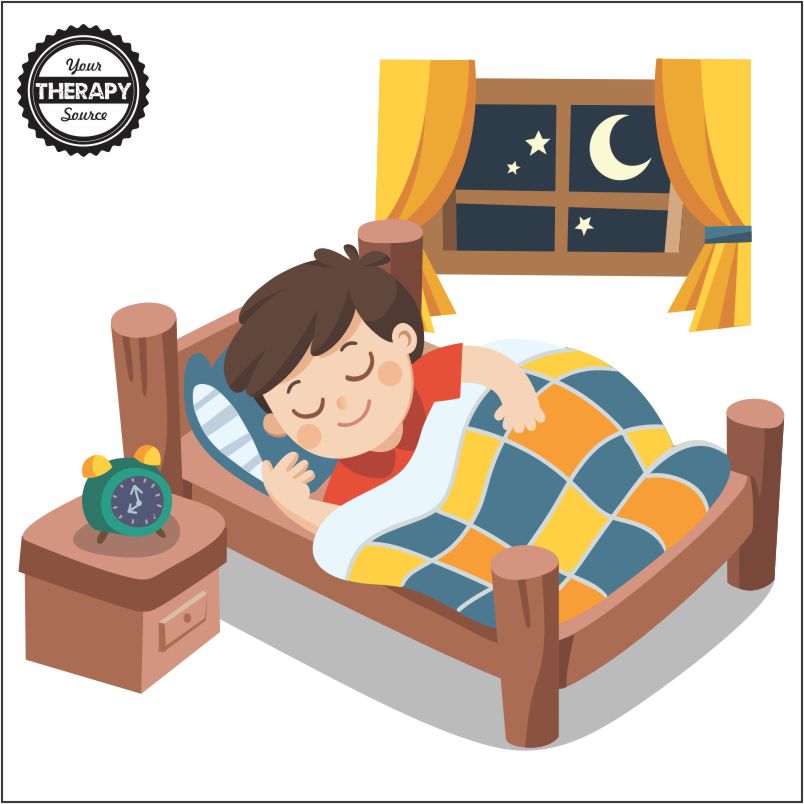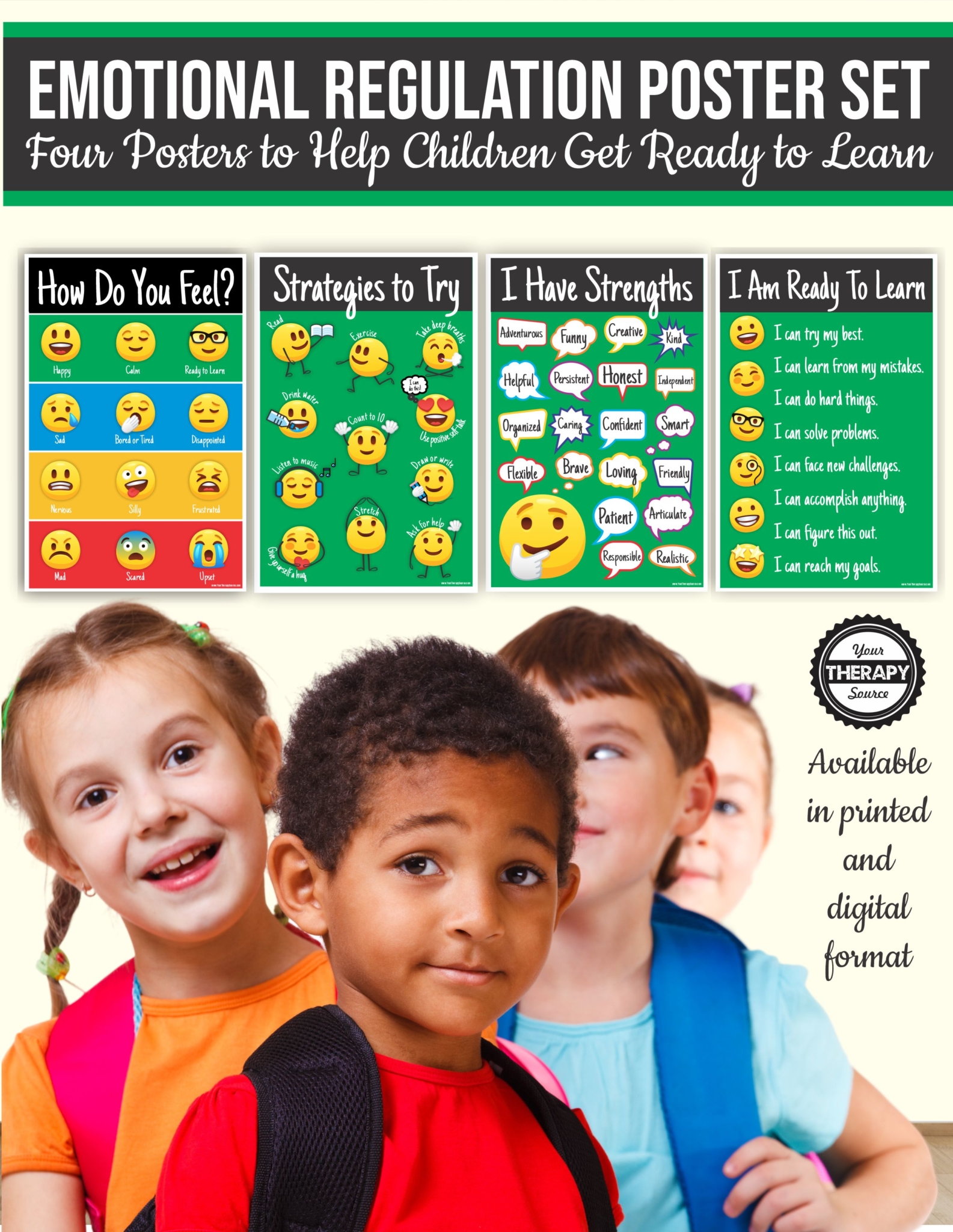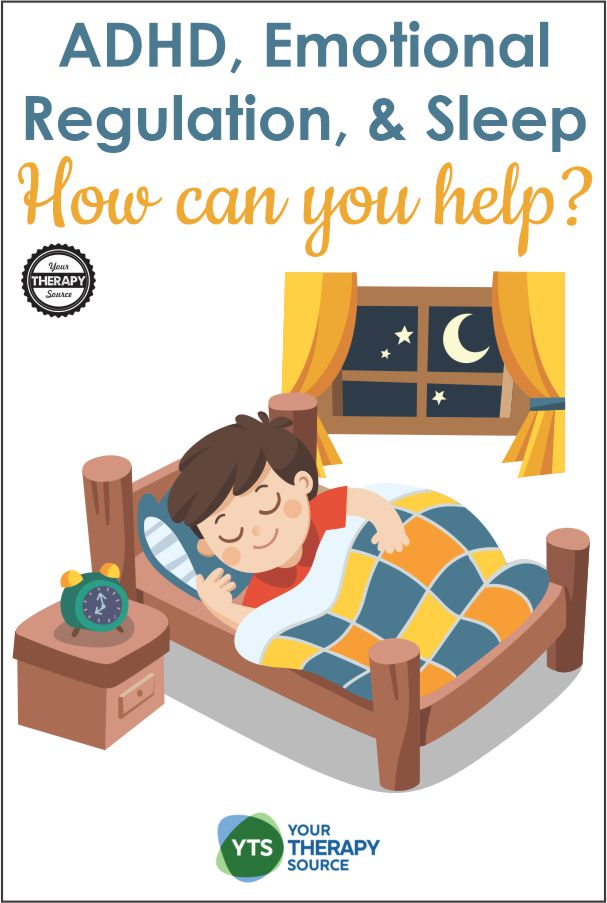ADHD, Emotional Regulation, and Sleep

If you work with children who have ADHD or who struggle with emotional regulation, you probably already know that sleep duration and quality can influence children throughout the day. A recent research study looked closely at ADHD, emotional regulation, and sleep.
Methodology
The participants in the study were divided into three groups:
- 108 children with ADHD who did not take medication.
- 80 children with ADHD under pharmacological treatment.
- 136 children without ADHD.
The researchers evaluated the children to determine if there was:
- deficient emotional self-regulation (DESR) which was defined using as anxious/depressed, attention problems and aggressive behaviors from the scales on the Child Behavior Checklist.
- sleep disturbances using the Sleep Disturbance Scale for Children.

Emotional Regulation Skills DIGITAL version
Results of the Study on ADHD, Emotional Regulation, and Sleep
Following data analysis, the researchers determined that:
- significant differences were found comparing the three groups.
- there was a significantly higher profile on deficient emotional self-regulation in the children with ADHD especially those who did not undergo pharmacological treatment
- a positive correlation between deficient emotional self-regulation and sleep.
The researchers concluded that children and adolescents with ADHD without treatment present higher deficiencies in emotional self-regulation than healthy controls and consequently higher sleep problems (Sanabra et al, 2021).
Suggestions to Help
Looking for evidence based suggestions to help children with ADHD, emotional regulation and sleep?
Research indicates that changing sleep patterns can help improve inhibition in children with ADHD. Inhibitory control allows children to control their impulses and responses to stimuli. Inhibition is part of executive function skills and it can be difficult for children with ADHD. It is actually a primary cognitive deficit in ADHD. In this study, sleep extension improved inhibitory control by 13% overall in the children with ADHD (Cremone-Caira, et. al, 2019).
Another suggestion is to limit bedroom media access since it has been shown to be associated with limited sleep time. The research indicates that screen-based media time and bedroom media access should be routinely assessed and may be important intervention targets when addressing sleep problems in children with ASD (Engelheart, 2013).
References:
Cremone-Caira, A., Root, H., Harvey, E. A., McDermott, J. M., & Spencer, R. M. (2019). Effects of Sleep Extension on Inhibitory Control in Children With ADHD: A Pilot Study. Journal of attention disorders, 1087054719851575.
Engelheart, M MD et al. Media Use and Sleep Among Boys With Autism Spectrum Disorder, ADHD, or Typical Development.
Published online November 18, 2013 Pediatrics Vol. 132 No. 6 December 1, 2013 pp. 1081 -1089 (doi: 10.1542/peds.2013-2066)
Sanabra, M., Gómez-Hinojosa, T., Grau, N., & Alda, J. A. (2021). Deficient Emotional Self-Regulation and Sleep Problems in ADHD with and without Pharmacological Treatment. Journal of Attention Disorders, 1087054720986242.



